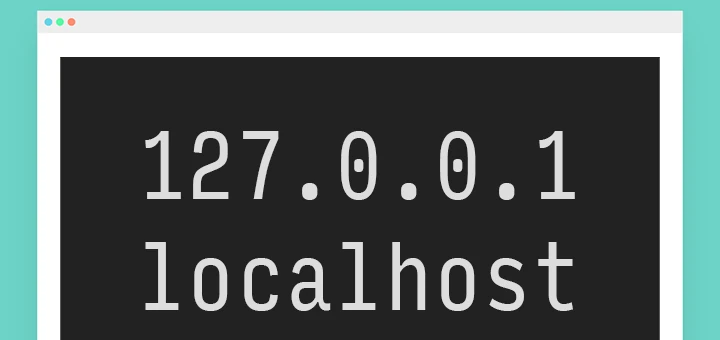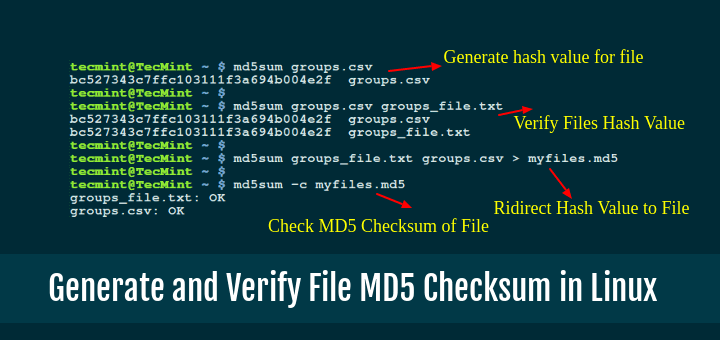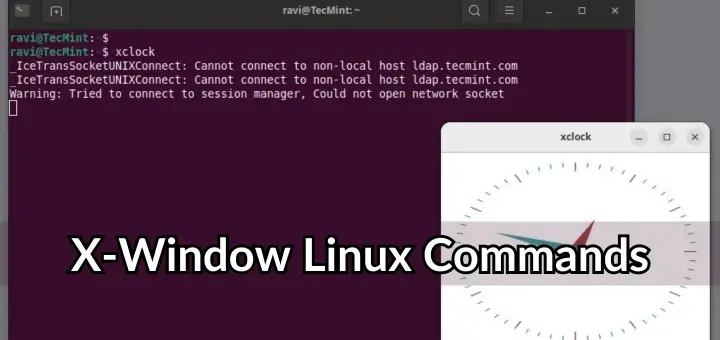Systemctl is a systemd utility that is responsible for Controlling the systemd system and service manager. Systemd is a collection of system management daemons, utilities, and libraries which serves as a replacement of System V init daemon. Systemd functions as central management and configuration platform for UNIX like system.
In the Linux, Ecosystem Systemd has been implemented on most of the standard Linux Distribution with a few exceptions. Systemd is the parent Process of all other daemons often but not always.

This article aims at throwing light on “How to control System and Services” on a system running systemd.
Starting with Systemtd and Systemctl Basics
1. First, check if systemd is installed on your system or not, and what is the version of currently installed Systemd?
# systemctl --version systemd 215 +PAM +AUDIT +SELINUX +IMA +SYSVINIT +LIBCRYPTSETUP +GCRYPT +ACL +XZ -SECCOMP -APPARMOR
It’s clear from the above example, that we have systemd 215 version Installed.
2. Check where the binaries and libraries of systemd and systemctl are installed.
# whereis systemd systemd: /usr/lib/systemd /etc/systemd /usr/share/systemd /usr/share/man/man1/systemd.1.gz # whereis systemctl systemctl: /usr/bin/systemctl /usr/share/man/man1/systemctl.1.gz
3. Check whether systemd is running or not.
# ps -eaf | grep [s]ystemd root 1 0 0 16:27 ? 00:00:00 /usr/lib/systemd/systemd --switched-root --system --deserialize 23 root 444 1 0 16:27 ? 00:00:00 /usr/lib/systemd/systemd-journald root 469 1 0 16:27 ? 00:00:00 /usr/lib/systemd/systemd-udevd root 555 1 0 16:27 ? 00:00:00 /usr/lib/systemd/systemd-logind dbus 556 1 0 16:27 ? 00:00:00 /bin/dbus-daemon --system --address=systemd: --nofork --nopidfile --systemd-activation
Notice: systemd is running as parent daemon (PID=1). In the above command ps with (-e) select all Processes, (-a) select all processes except session leaders and (-f) for full format listing (i.e. -eaf).
Also, note the square brackets in the above example and the rest of the examples to follow. Square Bracket expression is part of grep’s character class pattern matching.
4. Analyze systemd boot process.
# systemd-analyze Startup finished in 487ms (kernel) + 2.776s (initrd) + 20.229s (userspace) = 23.493s
5. Analyze time taken by each process at boot.
# systemd-analyze blame 8.565s mariadb.service 7.991s webmin.service 6.095s postfix.service 4.311s httpd.service 3.926s firewalld.service 3.780s kdump.service 3.238s tuned.service 1.712s network.service 1.394s lvm2-monitor.service 1.126s systemd-logind.service ....
6. Analyze critical chain at boot.
# systemd-analyze critical-chain
The time after the unit is active or started is printed after the "@" character.
The time the unit takes to start is printed after the "+" character.
multi-user.target @20.222s
└─mariadb.service @11.657s +8.565s
└─network.target @11.168s
└─network.service @9.456s +1.712s
└─NetworkManager.service @8.858s +596ms
└─firewalld.service @4.931s +3.926s
└─basic.target @4.916s
└─sockets.target @4.916s
└─dbus.socket @4.916s
└─sysinit.target @4.905s
└─systemd-update-utmp.service @4.864s +39ms
└─auditd.service @4.563s +301ms
└─systemd-tmpfiles-setup.service @4.485s +69ms
└─rhel-import-state.service @4.342s +142ms
└─local-fs.target @4.324s
└─boot.mount @4.286s +31ms
└─systemd-fsck@dev-disk-by\x2duuid-79f594ad\x2da332\x2d4730\x2dbb5f\x2d85d19608096
└─dev-disk-by\x2duuid-79f594ad\x2da332\x2d4730\x2dbb5f\x2d85d196080964.device @4
Important: Systemctl accepts services (.service), mount point (.mount), sockets (.socket) and devices (.device) as units.
7. List all the available units.
# systemctl list-unit-files UNIT FILE STATE proc-sys-fs-binfmt_misc.automount static dev-hugepages.mount static dev-mqueue.mount static proc-sys-fs-binfmt_misc.mount static sys-fs-fuse-connections.mount static sys-kernel-config.mount static sys-kernel-debug.mount static tmp.mount disabled brandbot.path disabled .....
8. List all running units.
# systemctl list-units UNIT LOAD ACTIVE SUB DESCRIPTION proc-sys-fs-binfmt_misc.automount loaded active waiting Arbitrary Executable File Formats File Syste sys-devices-pc...0-1:0:0:0-block-sr0.device loaded active plugged VBOX_CD-ROM sys-devices-pc...:00:03.0-net-enp0s3.device loaded active plugged PRO/1000 MT Desktop Adapter sys-devices-pc...00:05.0-sound-card0.device loaded active plugged 82801AA AC'97 Audio Controller sys-devices-pc...:0:0-block-sda-sda1.device loaded active plugged VBOX_HARDDISK sys-devices-pc...:0:0-block-sda-sda2.device loaded active plugged LVM PV Qzyo3l-qYaL-uRUa-Cjuk-pljo-qKtX-VgBQ8 sys-devices-pc...0-2:0:0:0-block-sda.device loaded active plugged VBOX_HARDDISK sys-devices-pl...erial8250-tty-ttyS0.device loaded active plugged /sys/devices/platform/serial8250/tty/ttyS0 sys-devices-pl...erial8250-tty-ttyS1.device loaded active plugged /sys/devices/platform/serial8250/tty/ttyS1 sys-devices-pl...erial8250-tty-ttyS2.device loaded active plugged /sys/devices/platform/serial8250/tty/ttyS2 sys-devices-pl...erial8250-tty-ttyS3.device loaded active plugged /sys/devices/platform/serial8250/tty/ttyS3 sys-devices-virtual-block-dm\x2d0.device loaded active plugged /sys/devices/virtual/block/dm-0 sys-devices-virtual-block-dm\x2d1.device loaded active plugged /sys/devices/virtual/block/dm-1 sys-module-configfs.device loaded active plugged /sys/module/configfs ...
9. List all failed units.
# systemctl --failed UNIT LOAD ACTIVE SUB DESCRIPTION kdump.service loaded failed failed Crash recovery kernel arming LOAD = Reflects whether the unit definition was properly loaded. ACTIVE = The high-level unit activation state, i.e. generalization of SUB. SUB = The low-level unit activation state, values depend on unit type. 1 loaded units listed. Pass --all to see loaded but inactive units, too. To show all installed unit files use 'systemctl list-unit-files'.
10. Check if a Unit (cron.service) is enabled or not?.
# systemctl is-enabled crond.service enabled
11. Check whether a Unit or Service is running or not?.
# systemctl status firewalld.service
firewalld.service - firewalld - dynamic firewall daemon
Loaded: loaded (/usr/lib/systemd/system/firewalld.service; enabled)
Active: active (running) since Tue 2015-04-28 16:27:55 IST; 34min ago
Main PID: 549 (firewalld)
CGroup: /system.slice/firewalld.service
└─549 /usr/bin/python -Es /usr/sbin/firewalld --nofork --nopid
Apr 28 16:27:51 tecmint systemd[1]: Starting firewalld - dynamic firewall daemon...
Apr 28 16:27:55 tecmint systemd[1]: Started firewalld - dynamic firewall daemon.
Control and Manage Services Using Systemctl
12. List all services (including enabled and disabled).
# systemctl list-unit-files --type=service UNIT FILE STATE arp-ethers.service disabled auditd.service enabled [email protected] disabled blk-availability.service disabled brandbot.service static collectd.service disabled console-getty.service disabled console-shell.service disabled cpupower.service disabled crond.service enabled dbus-org.fedoraproject.FirewallD1.service enabled ....
13. How do I start, restart, stop, reload and check the status of a service (httpd.service) in Linux.
# systemctl start httpd.service
# systemctl restart httpd.service
# systemctl stop httpd.service
# systemctl reload httpd.service
# systemctl status httpd.service
httpd.service - The Apache HTTP Server
Loaded: loaded (/usr/lib/systemd/system/httpd.service; enabled)
Active: active (running) since Tue 2015-04-28 17:21:30 IST; 6s ago
Process: 2876 ExecStop=/bin/kill -WINCH ${MAINPID} (code=exited, status=0/SUCCESS)
Main PID: 2881 (httpd)
Status: "Processing requests..."
CGroup: /system.slice/httpd.service
├─2881 /usr/sbin/httpd -DFOREGROUND
├─2884 /usr/sbin/httpd -DFOREGROUND
├─2885 /usr/sbin/httpd -DFOREGROUND
├─2886 /usr/sbin/httpd -DFOREGROUND
├─2887 /usr/sbin/httpd -DFOREGROUND
└─2888 /usr/sbin/httpd -DFOREGROUND
Apr 28 17:21:30 tecmint systemd[1]: Starting The Apache HTTP Server...
Apr 28 17:21:30 tecmint httpd[2881]: AH00558: httpd: Could not reliably determine the server's fully q...ssage
Apr 28 17:21:30 tecmint systemd[1]: Started The Apache HTTP Server.
Hint: Some lines were ellipsized, use -l to show in full.
Note: When we use commands like start, restart, stop and reload with systemctl, we will not get any output on the terminal, the only status command will print the output.
14. How to active a service and enable or disable a service at boot time (autostart service at system boot).
# systemctl is-active httpd.service # systemctl enable httpd.service # systemctl disable httpd.service
15. How to mask (making it impossible to start) or unmask a service (httpd.service).
# systemctl mask httpd.service ln -s '/dev/null' '/etc/systemd/system/httpd.service' # systemctl unmask httpd.service rm '/etc/systemd/system/httpd.service'
16. How to a Kill a service using systemctl command.
# systemctl kill httpd # systemctl status httpd httpd.service - The Apache HTTP Server Loaded: loaded (/usr/lib/systemd/system/httpd.service; enabled) Active: failed (Result: exit-code) since Tue 2015-04-28 18:01:42 IST; 28min ago Main PID: 2881 (code=exited, status=0/SUCCESS) Status: "Total requests: 0; Current requests/sec: 0; Current traffic: 0 B/sec" Apr 28 17:37:29 tecmint systemd[1]: httpd.service: Got notification message from PID 2881, but recepti...bled. Apr 28 17:37:29 tecmint systemd[1]: httpd.service: Got notification message from PID 2881, but recepti...bled. Apr 28 17:37:39 tecmint systemd[1]: httpd.service: Got notification message from PID 2881, but recepti...bled. Apr 28 17:37:39 tecmint systemd[1]: httpd.service: Got notification message from PID 2881, but recepti...bled. Apr 28 17:37:49 tecmint systemd[1]: httpd.service: Got notification message from PID 2881, but recepti...bled. Apr 28 17:37:49 tecmint systemd[1]: httpd.service: Got notification message from PID 2881, but recepti...bled. Apr 28 17:37:59 tecmint systemd[1]: httpd.service: Got notification message from PID 2881, but recepti...bled. Apr 28 17:37:59 tecmint systemd[1]: httpd.service: Got notification message from PID 2881, but recepti...bled. Apr 28 18:01:42 tecmint systemd[1]: httpd.service: control process exited, code=exited status=226 Apr 28 18:01:42 tecmint systemd[1]: Unit httpd.service entered failed state. Hint: Some lines were ellipsized, use -l to show in full.
Control and Manage Mount Points using Systemctl
17. List all system mount points.
# systemctl list-unit-files --type=mount UNIT FILE STATE dev-hugepages.mount static dev-mqueue.mount static proc-sys-fs-binfmt_misc.mount static sys-fs-fuse-connections.mount static sys-kernel-config.mount static sys-kernel-debug.mount static tmp.mount disabled
18. How do I mount, unmount, remount, reload system mount points and also check the status of mount points on the system?
# systemctl start tmp.mount
# systemctl stop tmp.mount
# systemctl restart tmp.mount
# systemctl reload tmp.mount
# systemctl status tmp.mount
tmp.mount - Temporary Directory
Loaded: loaded (/usr/lib/systemd/system/tmp.mount; disabled)
Active: active (mounted) since Tue 2015-04-28 17:46:06 IST; 2min 48s ago
Where: /tmp
What: tmpfs
Docs: man:hier(7)
http://www.freedesktop.org/wiki/Software/systemd/APIFileSystems
Process: 3908 ExecMount=/bin/mount tmpfs /tmp -t tmpfs -o mode=1777,strictatime (code=exited, status=0/SUCCESS)
Apr 28 17:46:06 tecmint systemd[1]: Mounting Temporary Directory...
Apr 28 17:46:06 tecmint systemd[1]: tmp.mount: Directory /tmp to mount over is not empty, mounting anyway.
Apr 28 17:46:06 tecmint systemd[1]: Mounted Temporary Directory.
19. How to active, enable or disable a mount point at boot time (auto mount at system boot).
# systemctl is-active tmp.mount # systemctl enable tmp.mount # systemctl disable tmp.mount
20. How to mask (making it impossible to start) or unmask a mount point in Linux.
# systemctl mask tmp.mount ln -s '/dev/null' '/etc/systemd/system/tmp.mount' # systemctl unmask tmp.mount rm '/etc/systemd/system/tmp.mount'
Control and Manage Sockets using Systemctl
21. List all available system sockets.
# systemctl list-unit-files --type=socket UNIT FILE STATE dbus.socket static dm-event.socket enabled lvm2-lvmetad.socket enabled rsyncd.socket disabled sshd.socket disabled syslog.socket static systemd-initctl.socket static systemd-journald.socket static systemd-shutdownd.socket static systemd-udevd-control.socket static systemd-udevd-kernel.socket static 11 unit files listed.
22. How do I start, restart, stop, reload and check the status of a socket (example: cups.socket) in Linux.
# systemctl start cups.socket # systemctl restart cups.socket # systemctl stop cups.socket # systemctl reload cups.socket # systemctl status cups.socket cups.socket - CUPS Printing Service Sockets Loaded: loaded (/usr/lib/systemd/system/cups.socket; enabled) Active: active (listening) since Tue 2015-04-28 18:10:59 IST; 8s ago Listen: /var/run/cups/cups.sock (Stream) Apr 28 18:10:59 tecmint systemd[1]: Starting CUPS Printing Service Sockets. Apr 28 18:10:59 tecmint systemd[1]: Listening on CUPS Printing Service Sockets.
23. How to active a socket and enable or disable at boot time (autostart socket at system boot).
# systemctl is-active cups.socket # systemctl enable cups.socket # systemctl disable cups.socket
24. How to mask (making it impossible to start) or unmask a socket (cups.socket).
# systemctl mask cups.socket ln -s '/dev/null' '/etc/systemd/system/cups.socket' # systemctl unmask cups.socket rm '/etc/systemd/system/cups.socket'







